So, your shiny new Dirwin electric bike just arrived. You aced the assembly process, and you’re ready to ride into the sunset. There’s just one problem. While you love the fact that your ebike has a battery (after all, it powers the whole operation!), you’re not quite sure how to take care of it.
Let’s fix that.
How Does Your Ebike Battery Work?
Your lithium-ion (Li-ion) electric bike battery is the driving force behind your bike’s motor. Essentially a more powerful version of the same types of batteries that fuel your phone and laptop, it has a series of interconnected cells. While each cell only produces a limited voltage, together, they’re a force to be reckoned with.
Not sure what the technical specs mean? Let’s take a quick look:
- The voltage (for example, 36 or 42 V) is the battery’s total potential power output. More volt means more power.
- Amp-hours show you how much power your electric bike’s battery can generate in one hour.
- Multiply the two, and you get watt-hours. The higher the number, the longer your ebike range — for example, a 720 Wh battery takes you longer than a 624 Wh battery. Having said that, your actual range depends on your level of pedal assist and the terrain you’re riding through.
When you charge your battery, the charger converts the AC power that powers your home into DC power that fuels your ebike. The battery then stores that, ready for you to use whenever you’re up for a ride.
Battery Management System
The battery management system, the small circuit board on your battery pack, helps to regulate your ebike battery’s performance. It monitors how much power you have left, keeps the charge levels on each cell even, controls energy flow, and protects the battery from power surges. The BMS also gives you key info about the battery’s health, so keep a close eye on it.
Battery Life Cycle
As powerful and durable as your electric bike’s battery is, it won’t last forever. We measure its lifespan in charge cycles — and each charge represents one cycle. Most ebike batteries start becoming less efficient after 300 to 500 cycles. You’ll know you’re dealing with an aging battery when your range goes down. (Don’t worry. That’s why we have replacement ebike batteries!)
UL Certifications
Not all ebike batteries are created equal. That fact goes beyond their voltage, amp-hours, and type of battery (Li-ion batteries are the best). The UL 2849 and UL 2271 certifications that your Dirwin electric bike’s battery bears show that it’s been thoroughly tested for performance, electrical safety, mechanical safety (robustness in the face of physical impacts), and thermal safety (temperature ranges).
How to Charge Your Ebike Battery
Charging your Dirwin ebike battery is easy — but the process comes with a few more instructions than charging your phone. Follow these tips for top performance and a battery that lasts as long as possible.
When to Charge Your Ebike Battery
Aim to charge your ebike battery when it has 20 to 50 percent remaining — and never let that number go down to zero if you can help it, because doing that too often causes it to degrade faster. Many regular riders, including daily commuters, will discover they don’t need to charge their batteries more than two or three times a week. However, your mileage will (quite literally) vary, so please keep an eye on that juice.
How Full to Charge Your Electric Bike’s Battery
This one seems like a no-brainer at first glance. All the way to 100 percent, right? Actually, no. Your ebike battery will last longer if you only charge it to about 80 percent of its total capacity. That’s because our Li-ion batteries prefer a perfect balance. They don’t like to run on fumes, but they don’t want to be overloaded, either.
Where and How to Charge Your Ebike
Charge your ebike battery in a well-ventilated space where it isn’t exposed to sunlight, moisture, or humidity. If you take your battery out to charge it (perhaps because you have a second ready to go), place it on a flat, safe surface while it charges. Charging your battery indoors is the better option, because that protects it from the weather and sun.
How Long Does Your Ebike Battery Take to Charge?
That depends on how low your battery was when you plugged it in, but most riders will find that their battery is ready to go after four to six hours. Charging it overnight is often the most practical choice.
Storing Your Ebike Battery
The way you store your Dirwin ebike battery has an impact on its overall lifespan, so let’s look at the best way to do it. These tips always apply, no matter how long you need to store your Dirwin electric bike’s battery:
- Temperatures below 32 °F or over 104 °F are bad news for your battery. Stay within that range, and make sure your battery isn’t exposed to direct sunlight or moisture for long periods of time.
- Don’t store empty batteries. A 50 percent charge is a good figure to aim for.
- Your battery and electric bike should be off before you remove the battery.
Use a protective case or bag for short-term storage, including to store a second (backup) battery you take with you on long rides. Removing the battery from your Dirwin electric bike when you park is good practice that reduces the risk of theft, so nearly every rider can benefit from investing in a storage container.
If you’re not planning on using your electric bike for a while, it is a good idea to remove it from the bike and store it with a charge of 50 percent. Check its charge level every few weeks and recharge your ebike battery as needed.
Essential Ebike Battery Maintenance Tips
Proactive maintenance makes your Dirwin electric bike battery go the extra mile for you. Prolong its functional lifespan and keep your electronic bike battery in excellent condition by:
- Cleaning the battery contacts regularly by using a microfiber cloth to wipe down any debris or dirt, especially after all-terrain rides. This prevents rust and makes sure that you can count on a good electrical connection.
- Check your Dirwin ebike battery for signs of physical wear and tear or damage. Cracks, dents, and deformations all spell trouble. (Shoot us an email with a picture if you notice anything like that, and we’re happy to give you further advice.)
- When storing or using your battery, keep it away from metal objects that could lead to short circuiting.
- If you ride in extreme cold, consider adding a neoprene sleeve to prolong your battery’s range. Ebike batteries lose range in cold conditions, and this added protection helps you go the distance.
- It bears repeating that it’s best to store your ebike battery in a dry, cool space between 32 and 104 °F, as well as that checking charge levels and keeping them at around 50 percent while storing your battery prolongs its lifespan.
Ebike Battery Safety Considerations
While you now have a better idea of the best way to look after your Dirwin ebike battery, you also have some key safety considerations to keep in mind. Our UL 2849 and UL 2271 certified Li-ion batteries are designed to be the safest on the market, but they are also powerful.
While most of these tips are a combination of common sense and aspects of electric bike battery maintenance we have already covered, your safety is important enough to go over them anyway:
- Should your ebike battery sustain any physical damage (for example, as a result of an impact or crash), don’t try to charge it. Instead, switch to your backup battery as you assess the damage.
- Keep your electric bike battery away from hazardous materials — including corrosive substances, acids, fuels, and solvents.
- While our ebike batteries are designed to withstand rain and snow while you’re riding, they’re not meant to be fully submerged in water. If this happens, switch to a new battery (we’ve all been there with our phones, haven’t we?).
- Don’t leave your ebike parked in direct sun or in the trunk of your car with the battery still attached. Remove the battery and take it with you.
- When your ebike battery finally bites the dust, check in with your local authority for information about safe disposal and recycling, because regulations vary.
Ready to Hit the Road?
Your Dirwin ebike battery is far from the only thing that makes your electric bike fantastic, but you wouldn’t get that amazing pedal assist without it. The bottom line? Take care of it.
We hope this ebike battery care 101 pointed you in the right direction. If you still have questions, check the manual — and if you still have questions after that, feel free to contact us. We’re always happy to help you enjoy your Dirwin ebike for as long as possible.
Dealing with worn batteries or broken chargers? We sell new ones, so head over to our electric bike accessories page to find what you need!










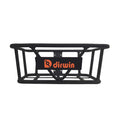
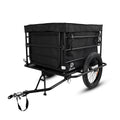

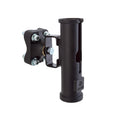
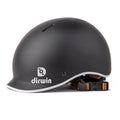
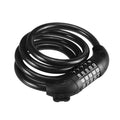
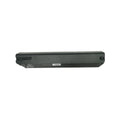

Leave a comment